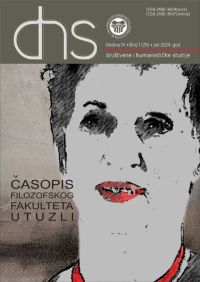Reading Gender Stereotypes in Printed Advertisements
Reading Gender Stereotypes in Printed Advertisements
Author(s): Selma Kešetović, Selma ĐulimanSubject(s): Psychology, Semiotics / Semiology, Applied Linguistics, Communication studies
Published by: Filozofski fakultet Univerziteta u Tuzli
Keywords: gender; stereotype; advertisement; semiotics;
Summary/Abstract: Semiotics describes how advertising messages manipulate the connection between ‘meaning’ and ‘reality’ by investigating how already determined meanings are attributed to given products, thus establishing methods of decoding their true meaning. Therefore, the central theme of the semiotic approach to advertising is establishing a connection between meaning and reality. To that extent, semiotics as the science of signs is not an abstract study but rather reflects the essence of social life emphasizing the multi-layered and dynamic character of meaning creation. Advertising messages, therefore, have as much meaning as they have ‘readers’. This research aimed to establish a connection between gender stereotypes and advertising messages, i.e. to point out the main gender stereotypes shown in advertising messages, and to determine whether, in the new century, there have been changes in the way and contexts of the portrayal of women and men in advertisements compared to of the same in the past. A total of 31 advertising messages displayed in a women’s magazine were examined. A detailed analysis of the visual representation of female and male bodies, symbols, body positioning, and products was conducted. Messages are direct and open. Human bodies are glorified by emphasizing a healthy, well-shaped, well-groomed female and male body as a symbol of the extension of the species. It has also been noted that advertising messages reflect changes in society and social expectations among members of both sexes.
Journal: DHS-Društvene i humanističke studije: časopis Filozofskog fakulteta u Tuzli
- Issue Year: XV/2024
- Issue No: 25
- Page Range: 467-492
- Page Count: 26
- Language: English

